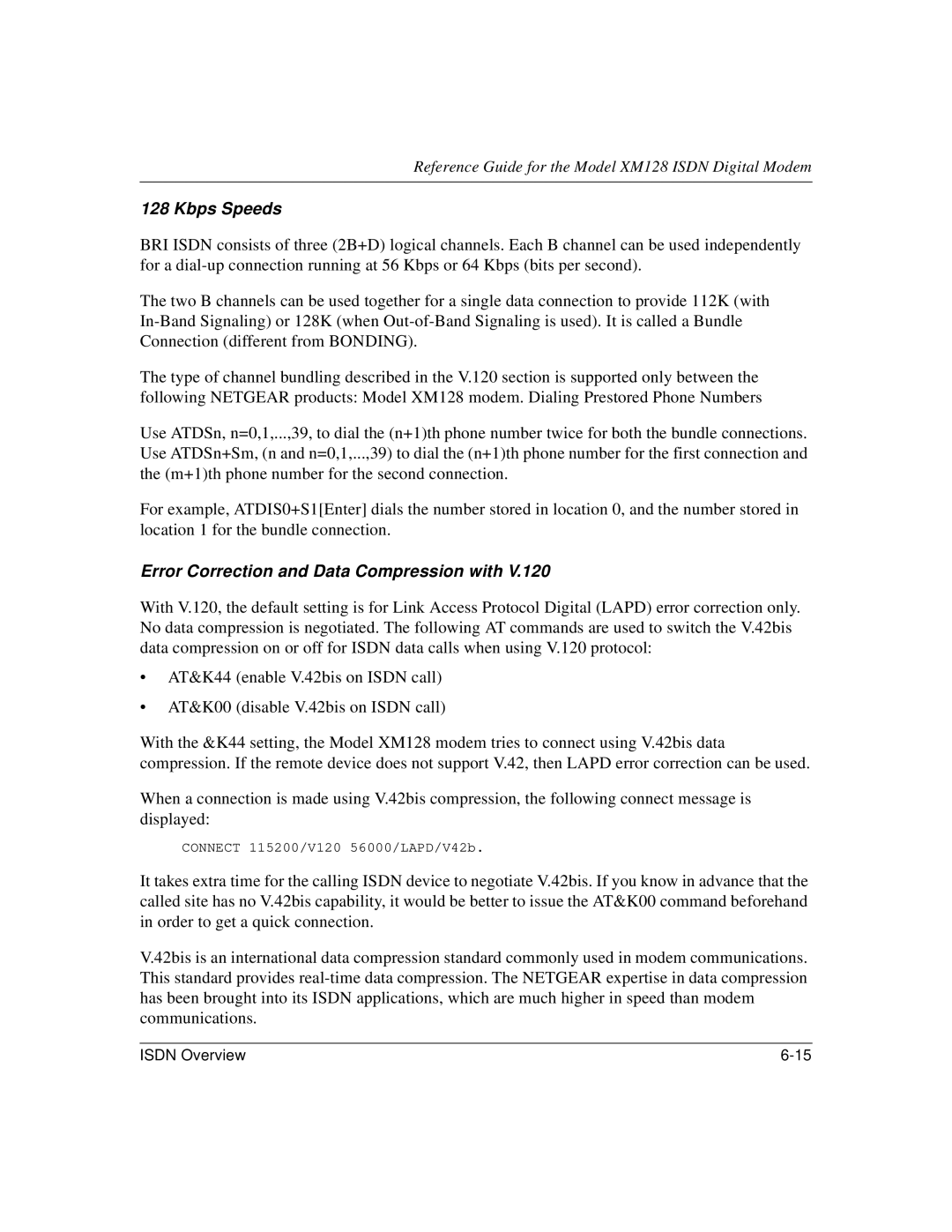
Reference Guide for the Model XM128 ISDN Digital Modem
128 Kbps Speeds
BRI ISDN consists of three (2B+D) logical channels. Each B channel can be used independently for a
The two B channels can be used together for a single data connection to provide 112K (with
The type of channel bundling described in the V.120 section is supported only between the following NETGEAR products: Model XM128 modem. Dialing Prestored Phone Numbers
Use ATDSn, n=0,1,...,39, to dial the (n+1)th phone number twice for both the bundle connections. Use ATDSn+Sm, (n and n=0,1,...,39) to dial the (n+1)th phone number for the first connection and the (m+1)th phone number for the second connection.
For example, ATDIS0+S1[Enter] dials the number stored in location 0, and the number stored in location 1 for the bundle connection.
Error Correction and Data Compression with V.120
With V.120, the default setting is for Link Access Protocol Digital (LAPD) error correction only. No data compression is negotiated. The following AT commands are used to switch the V.42bis data compression on or off for ISDN data calls when using V.120 protocol:
•AT&K44 (enable V.42bis on ISDN call)
•AT&K00 (disable V.42bis on ISDN call)
With the &K44 setting, the Model XM128 modem tries to connect using V.42bis data compression. If the remote device does not support V.42, then LAPD error correction can be used.
When a connection is made using V.42bis compression, the following connect message is displayed:
CONNECT 115200/V120 56000/LAPD/V42b.
It takes extra time for the calling ISDN device to negotiate V.42bis. If you know in advance that the called site has no V.42bis capability, it would be better to issue the AT&K00 command beforehand in order to get a quick connection.
V.42bis is an international data compression standard commonly used in modem communications. This standard provides
ISDN Overview |
